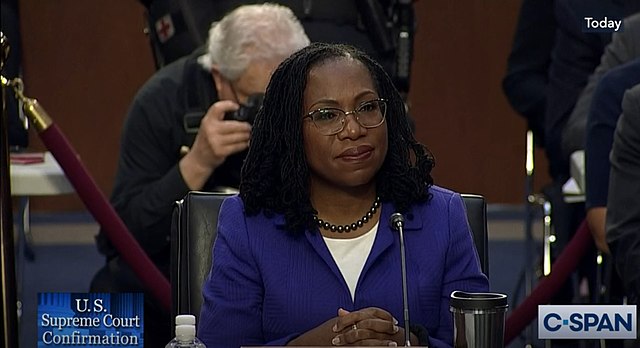When Justice Stephen Breyer announced his retirement from the Supreme Court, debate sparked over his replacement. President Joe Biden explained his intention to nominate a Black woman for the position, which led to concerns over racial preference.
After searching for an appropriate fit, Biden nominated Judge Ketanji Brown Jackson on Feb. 22. She would be the 116th associate judge on the court, according to the White House. A graduate from Harvard University, Jackson has most recently served on the U.S. Court of Appeals for the D.C. Circuit, Politico writes.
While Jackson may be qualified on paper for the position of Supreme Court justice, her judicial philosophies provide a reason for concern. Two major concerns from last week’s Senate hearings include her refusal to take a stance on court-packing and a history of liencieny with convicted criminals.
DANGERS OF COURT PACKING
Court packing can be a dangerous game. According to The Hill, “Court packing is the majority party adding justices to the court in order to get the political results they desire. As history shows us, once a country does this, the independence of the judiciary is over. You no longer have “Constitutional rights.” You have whatever “rights” the majority party lets you have.”
When Jackson refused to comment her opinion on court packing, brushing it off as a “political issue” that judges should not speak into, it was troubling. Justice Amy Coney Barrett also refused to answer the question, but other justices including Stephen Breyer and Ruth Bader Ginsburg were vocal against court packing, Politico reports.
Senate leader Mitch McConnell, R-Ky, who claims he entered the hearings with an “open mind,” was bothered by her lack of response on court packing. “Judge Jackson refuses to reject the fringe position that Democrats should try to pack the Supreme Court,” McConnell said, according to The Epoch Times.
LENIENCY ON CRIMINALS
Senate Republicans pushed Jackson into explaining her apparent ease when it comes to convicting criminals of child pornography crimes.
According to Fox News, she debated her rulings with Sen. Josh Hawley, R-Mo, who accused her of enforcing soft sentences. “At one point in the hearing, Hawley brought up a case where an 18-year-old was sentenced to three months in prison for possessing a large quantity of child pornography and read Jackson’s comments from the sentencing where she expressed sympathy for the defendant and his family,” Fox News writes.
In many of her cases, Jackson sentenced the criminals to lesser sentences than the prosecutors or guidelines recommended. If Jackson is indeed soft on child porn and other related crimes, her confirmation can be a perilous step forward for the United States.
CONTROVERSY
Jackson made waves when she refused to define what a “woman” is. She explained that she was not “a biologist,” The New York Post writes. While the question may seem unimportant to some, it is crucial for her to take a stance on a simple issue when she inevitably must face cases and base it against the Constitution.
People took to Twitter to share their frustration with her avoidance. “The 19th Amendment lists “sex” as a prohibited basis for discrimination against voting rights, & abortion advocates sometimes argue that the propensity of women to get pregnant means that gender equity requires a right to abortion, so defining what a woman is? Not irrelevant,” tweeted Dan McLaughlin.
Americans wait in anticipation to see if Jackson is confirmed to the Supreme Court. Her lifelong position will affect millions of lives and the future of the nation.












